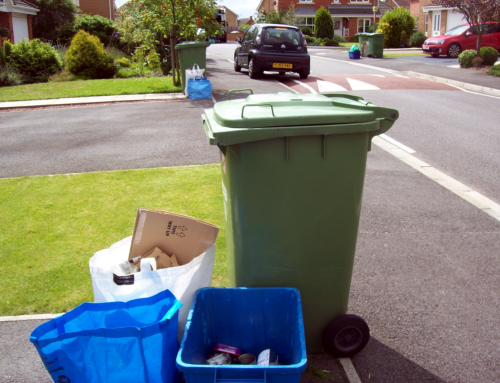by Phillip Ward
3 minute read
For those who don’t know it, Rezolve is a social enterprise based in Bodmin. It has a number of lines of business based around the re-use of furniture, white goods and bikes. It prevents around 30 tonnes of waste each month from going to landfill, thereby avoiding 120 tonnes of CO2 emissions. Integral to all this are its training activities. Until recently Rezolve has been very successful – winning the award for the best third sector business in Cornwall and being shortlisted for the equivalent England-wide award last year. I am proud to be a non-executive director.
But things have started to go wrong. First retailing got tight, especially in Cornwall where incomes are low. You might think that would favour second hand sales – but it doesn’t seem to work that way. As high street retailers cut their prices and extended their credit terms, the gap between the price of new goods and what Rezolve needs to charge for refurbished ones has narrowed, making new furniture more attractive. The slow-down in the high street has also meant fewer manufacturers’ seconds and returns were available for Rezolve to sell to keep up sales volumes and cash flow.
The results of payment by results
The second and more important change came from the government’s new arrangements for paying for training services. The new “payment by results” approach means that the bulk of training funds are paid only when an individual completes 3 separate milestones over a given period. This creates both an enormous cashflow problem and a significant risk, which makes it difficult to borrow against the contract. For instance, Rezolve could take on a hundred trainees, invest in getting them through their first two milestones and then, because of Cornwall’s seasonal economy, lose many of them to casual jobs in tourism before a claim can be made.
As news of Rezolve’s problems broke, the National Audit Office published a report on the Government’s new training programmes. It highlighted the speed with which they were introduced – without piloting – and the risks if not enough entrants eventually find work. The NAO commented that, “The Department has set providers stretching performance targets and it needs to ensure that they do not cut corners to stay in profit, such as targeting easy to reach people, reducing service levels or treating sub-contractors unfairly.” Arguably pushing cashflow risk down to the third sector is unfair. It is certainly damaging.
In the past, income from training activities reflected the fact that Rezolve’s furniture-based business provides wider social benefits, alongside reducing landfill. It has provided training, offender rehabilitation, work experience and support for community service orders. These wider benefits are often welcomed but not properly rewarded. The proceeds of furniture sales alone do not give the organisation financial stability, but the income from training could provide that – and some capacity for business development.
Without the assurance of training income, it will be difficult for Rezolve to continue in its present form. The impact will be felt by its 24 dedicated staff, as well as the 50 volunteers who support it. While it is a good example of social enterprise, it is by no means unique and I’m concerned that there will be many others in similar difficulties.
Is this another example of the law of unintended consequences? The DWP’s reasonable concern to show that they are getting results from their spending on training may be thwarting both Defra’s concern to keep used furniture out of landfill and No10’s ambition to see thriving community enterprises contributing to the Big Society. Someone – perhaps WRAP – needs to understand and help quantify the risks these reforms create for social enterprises. And someone – perhaps the “Big Society Bank” – needs to assist them with cashflow and working capital until the new arrangements settle down.







The post reminds me of my own early start in the waste industry: setting up a green box recycling collection scheme as part of a social enterprise at Magpie Recycling in Brighton.
Eunomia recruited Paul Jones earlier this month, formerly the Chief Exec of Newport Waste Savers, also a social enterprise which had a leading role in delivering recycling collection services. Chatting to him caused me to reflect on the decreasing role that social enterprise organisations have in delivering recycling collection schemes. Once upon a time, social enterprise led the way in this sector, now it’s sorely under-represented. It’s a real shame.
Let’s hope that things go well for ReZolve and they get through their current difficult patch.
It would be a catastrophic example of the failure of The Big Society – the aim of which is supposedly to empower local people and communities – if ReZolve cannot be sufficiently supported by the public sector to remain a ‘going concern’. This fantastic organisation (of which I had the pleasure to be the founding chairman) doesn’t just deliver value for money in all of its areas of activity – it goes well beyond that: The unpaid for resource that this organisation attracts from dedicated and talented Non-Executive Directors like the current chairman Philip Rees, from the volunteers that support its programmes, and from the wider stakeholders that share ReZolve’s values and aims, are massive. Ever since most public funds stopped supporting charitable organisations themselves and focussed more and more on project specific outcomes, organisations like this one have had to run themselves on a shoe-string. On top of this, delaying the timing and risk profile of funding for social enterprises is a very dangerous game to play and will cause lasting damage if not addressed.